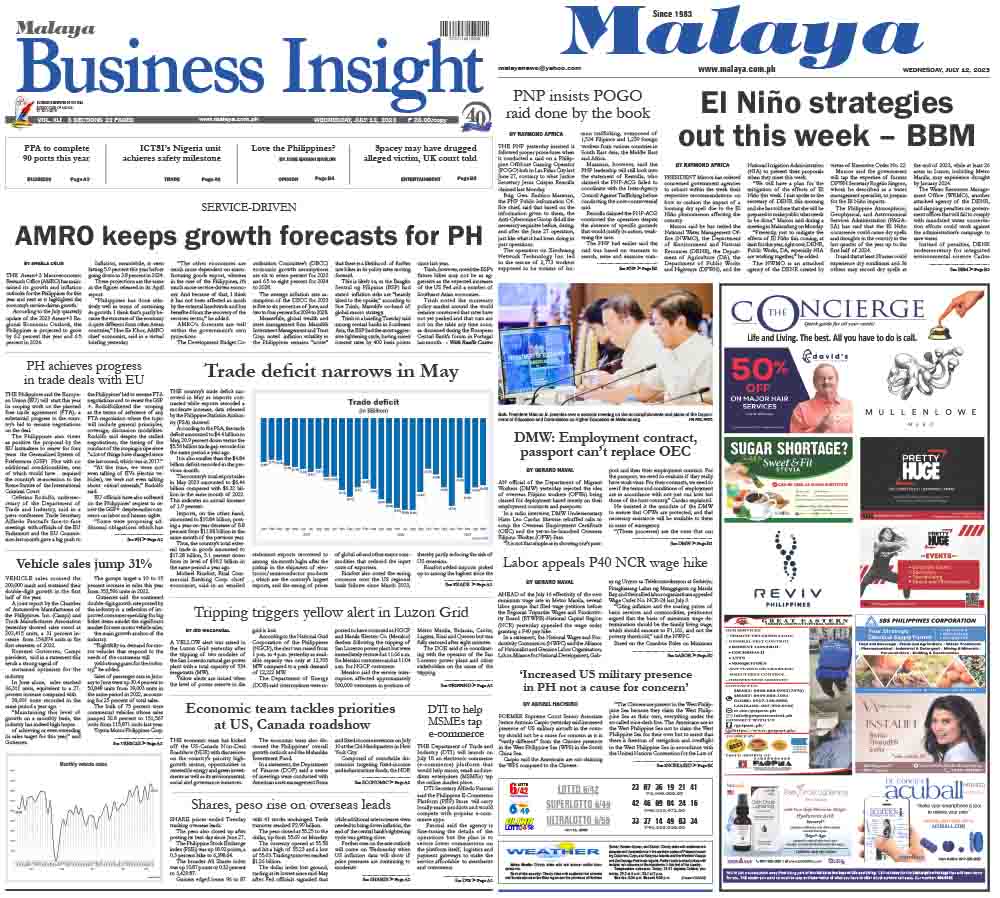THE Supreme Court (SC) has ruled that allegedly libelous remarks posted on social media platforms are punishable under Republic Act 10175, or the Cybercrime Prevention Act of 2012, and not under the regular libel law.
In an 18-page decision promulgated on April 26, 2023 but made public only on Monday, the SC Second Division granted the petition for review on certiorari – a legal remedy used to seek a review of another court’s ruling – filed by one Jannece Peñalosa against a certain Jose Ocampo Jr. assailing her libel conviction by the Court of Appeals.
The appellate court reversed the January 26, 2015 ruling of the Mandaluyong City Regional Trial Court which dismissed the case against Peñalosa and ruled that her allegedly libelous Facebook post against Ocampo, though made in 2011 and before the enactment of RA 10175, is punishable under Article 355 of the Revised Penal Code (RPC).
The said provision states that libel shall be punishable “by means of writing, printing, lithography, engraving, radio, phonograph, painting, theatrical exhibition, cinematographic exhibition, or any similar means.”
The CA interpreted Section 4 (c) (4) of the Cybercrime Prevention Act to mean that the libel provision in the RPC covers libelous internet or Facebook posts, being examples of libel by means of writing.
But Peñalosa insisted she should not be punished for libel for her Facebook remarks under the RPC but rather, under RA 10175.
She also argued that she cannot be prosecuted for an act that was not yet considered as illegal at the time it was committed, pointing out that the Cybercrime Prevention Act only became a law in 2012 when her post was made in 2011.
She likewise cited the September 16, 2014 resolution of the Department of Justice ordering state prosecutors to withdraw the case against her, saying that her Facebook post was not libelous.
But the appellate court, in a November 25, 2016 resolution, denied Peñalosa’s appeal, prompting her to run to the SC.
In its decision, the High Court said the Mandaluyong RTC did not commit grave abuse of discretion when it dismissed the case against Peñalosa.
“Judge Rizalina Capco-Umali, in a four-page Order, exhaustively and independently assessed Peñalosa’s Motion to Quash and the prosecution’s Motion to Withdraw Information. This is apparent in Judge Capco-Umali’s January 26, 2015 Order,” read the SC ruling penned by Senior Associate Justice Marvic Leonen.
“No grave abuse can be inferred simply because Judge Capco-Umali arrived at a similar conclusion as Prosecutor Josyli A. Tabajonda of the Office of the City Prosecutor of Mandaluyong,” the ruling added.
Furthermore, the SC pointed out that criminal laws “are to be construed” strictly against the State, and liberally in favor of the accused.
It also explained that in the libel article under the RPC, the phrase “similar means” does not include “online defamation” under the principle of “noscitur a sociis.”
Under this rule, the SC said that “where a particular word or phrase is ambiguous in itself or is equally susceptible to various meanings, its correct construction may be made clear and specific by considering the company of words in which it is founded or with which it is associated. “
“In Article 355, the associated words are ‘writing,’ ‘printing,’ ‘lithography,’ ‘engraving,’ ‘radio,’ ‘phonograph,’ ‘painting,’ ‘theatrical exhibition,’ and ‘cinematographic exhibition,’ clearly excluding ‘computer systems or other similar means which may be derived in the future’ specifically added in Article 4 (c)(4) of the Cybercrime Prevention Act,” the SC ruling said.
“If it were true that Article 355 of the Revised Penal Code already includes libel made through computer systems, then Congress had no need to legislate Article 4 (c) (4) of the Cybercrime Prevention Act, for the latter legal provision will be superfluous. That Congress had to legislate Article 4 (c) (4) means that libel done through computer systems, i.e., cyber libel, is an additional means of committing libel, punishable only under the Cybercrime Prevention Act,” it added.
The SC pointed out that to make cyber libel punishable under Article 355 of the RPC is to make a penal law effective retroactively but unfavorably to the accused, which is contrary to Article 22 of the RPC, which states that “penal laws shall have a retroactive effect insofar as they favor the person guilty of a felony.”
“For these reasons, an allegedly libelous Facebook post made may only be punished under the Cybercrime Prevention Act, not under Article 355 of the Revised Penal Code. Since the Facebook post complained of was made in 2011, a year before the Cybercrime Prevention Act was passed, there was no libel punishable under Article 355 of the Revised Penal Code. Nullum crimen, nulla poena sine lege – there is no crime when there is no law punishing it,“ the High Court said.
The SC clarified, though, that its decision will not leave Ocampo without recourse as he still has the remedy of a civil case against Peñalosa for damages should he opt to file one.
“Under Articles 19 to 21 of the Civil Code, aggrieved parties may bring civil actions for damages ‘for any harm inflicted upon them by defamatory falsehoods.’ More importantly, in civil actions, the complainant has full control of the case, unlike in criminal actions such as the present one, where the complainant has to defer to the prosecution,” the SC added.
Concurring with the decision are Associate Justices Amy Lazaro-Javier, Antonio Kho Jr., Jhosep Lopez and Mario Lopez.





